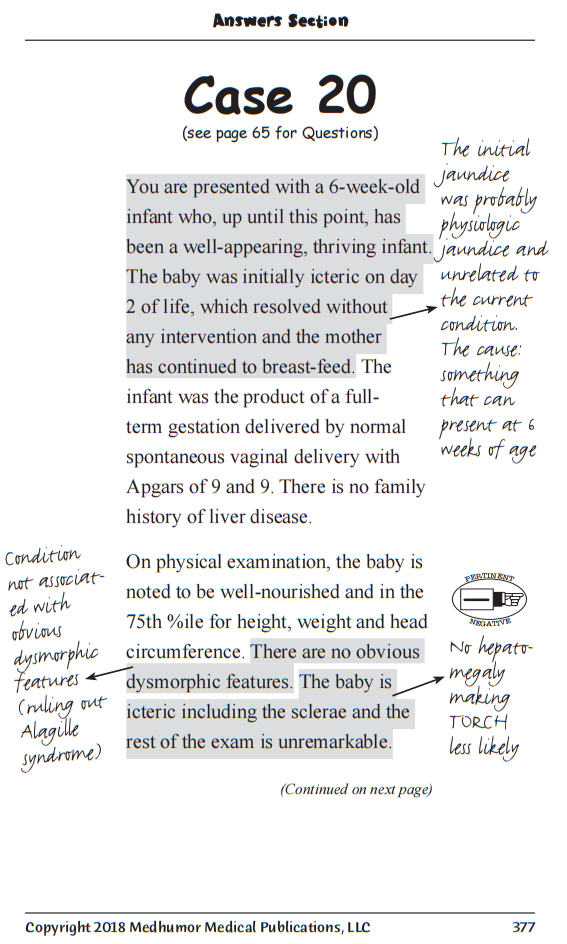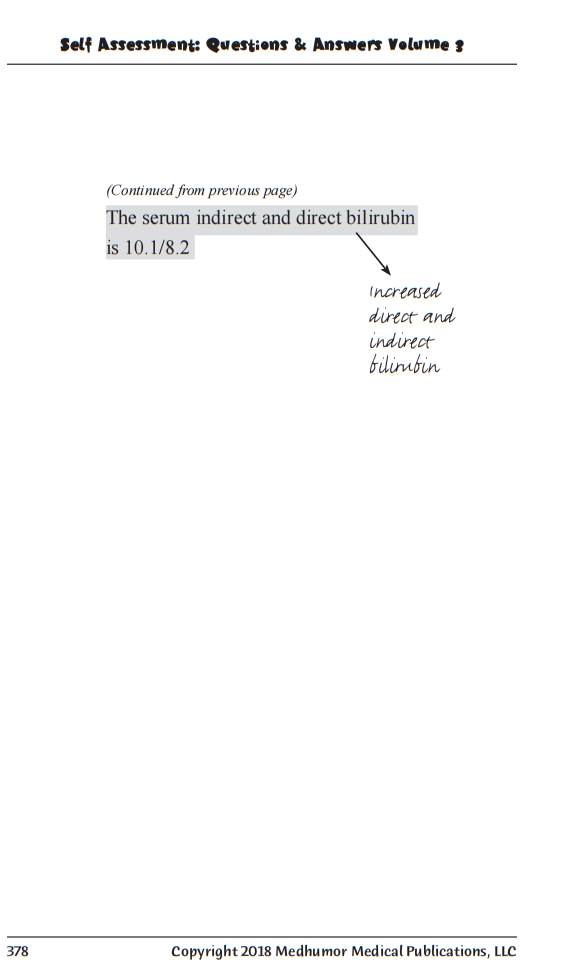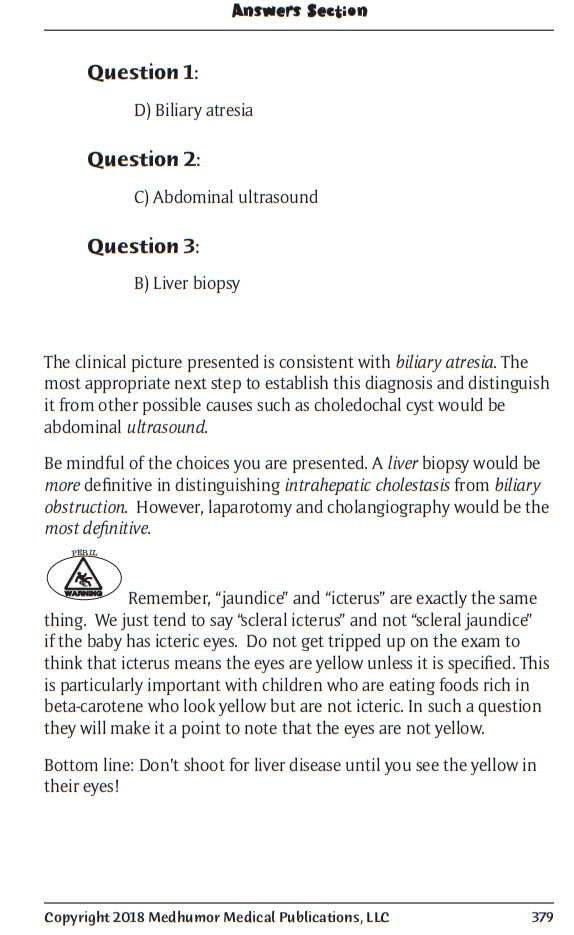Pediatric Board Review Question : 6-week-old infant who is icteric
Posted by Stuart C. Silverstein, MD Laughing Your Way to Passing the Pediatric Boards on Mar 1st 2024
You are presented with a 6-week-old infant who, up until this point, has been a well-appearing, thriving infant. The baby was initially icteric on day 2 of life, which resolved without any intervention and the mother has continued to breast-feed. The infant was the product of a full term gestation delivered by normal spontaneous vaginal delivery with Apgars of 9 and 9. There is no family history of liver disease. On physical examination, the baby is noted to be well-nourished and in the 75th %ile for height, weight and head circumference. There are no obvious dysmorphic features. The baby is icteric including the sclerae and the rest of the exam is unremarkable. The serum indirect and direct bilirubin is 10.1/8.2
Question 1:
The most likely explanation for the baby becoming icteric again would be:
A) Breast–milk jaundice
B) Alagille syndrome
C) Neonatal hepatitis
D) Biliary atresia
E) TORCH infection
Question 2:
The most appropriate next step in diagnosing the underlying cause would be:
A) Hepatitis B core and surface antigen titers
B) Liver biopsy
C) Abdominal ultrasound
D) Serology for TORCH infection
E) Trial of formula feeding
Question 3:
Which of the following would be helpful in making the definitive diagnosis?
A) Hepatitis B core and surface antigen titers
B) Liver biopsy
C) Abdominal ultrasound
D) Serology for TORCH infection
E) Trial of formula feeding
Whether you are sitting for the General Pediatric Board, Pediatric In Training Exam or the Peds MOCA module the process is the same, you have to break down the question and identify the clues that help with pattern recognition . As outlined below
The infant is 6 weeks old and the question noting he was icteric on day 2 is a red herring designed to distract you.
Alagille syndrome is associated with dysmorphic features including prominent forehead, deep set eyes and bulbous tip nose. The absence of dysmorphic features rules out Question 1 choice B . Since he is 6 weeks old he is too far out for breast mild jaundice . The absence of hepatomegaly makes TORCH infection less likely. A direct bilirubin of 8.2 is markedly elevated suggesting an obstructive process Once you have the diagnosis you can then deduce how it would be diagnosed and verified .



